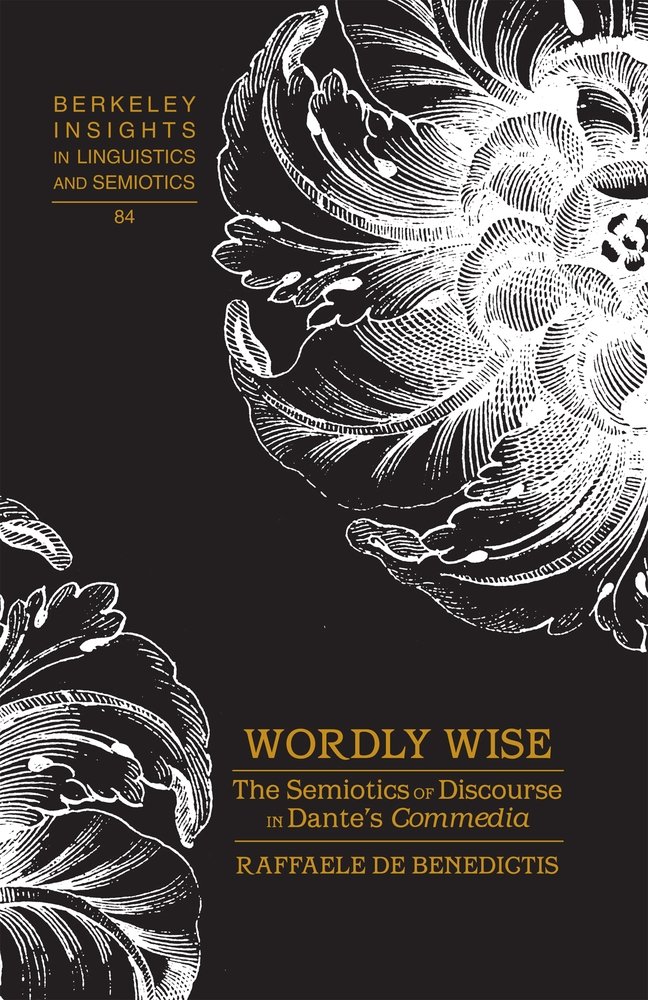In Wordly Wise: The Semiotics of Discourse in Dante's Commedia, Raffaele De Benedictis proposes a new critical method in the study of the Divine Comedy and Dante's minor works. It systematically and comprehensively addresses the discursive aspect of Dante's works and focuses mainly on the reader, who, along with the author and the text, contributes to the making of discursive paths and discourse-generating functions through the act of reading. This work allows the reader to become acquainted with how meaning is generated and whether it is granted legitimacy in the text. Also, in a system of signification, sign function and sign production are not limited to the properties of the mind but are the result of working interactively with the properties of discourse, which provide directionality for the reader's enunciation(s) in action.



